The pathogen has been newly identified in eight cases of encephalitis in Germany over the past 20 years.



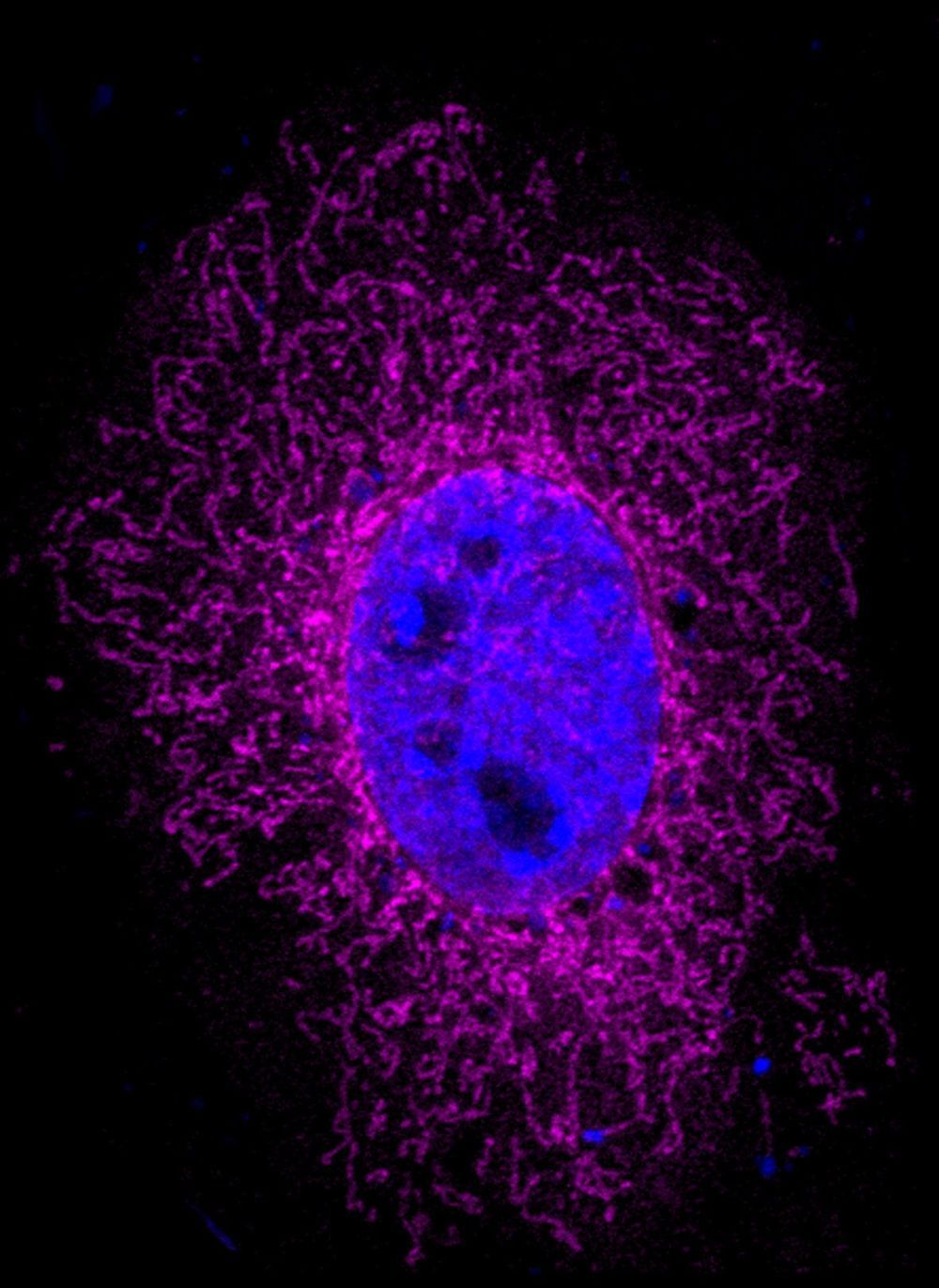
The size of the human brain increased profoundly during evolution. A certain gene that is only found in humans triggers brain stem cells to form a larger pool of stem cells. As a consequence, more neurons can arise, which paves the way to a bigger brain. This brain size gene is called ARHGAP11B and so far, how it works was completely unknown. Researchers at the Max Planck Institute of Molecular Cell Biology and Genetics in Dresden now uncovered its mode of action. They show that the ARHGAP11B protein is located in the powerhouse of the cell—the mitochondria—and induces a metabolic pathway in the brain stem cells that is characteristic of cancer cells.
The research group of Wieland Huttner, a founding director of the Max Planck Institute of Molecular Cell Biology and Genetics, has been investigating the molecular mechanisms underlying the expansion of the brain during mammalian evolution for many years. In 2015, the group reported a key role for a gene that is only present in humans and in our closest extinct relatives, the Neanderthals and Denisovans. This gene, named ARHGAP11B, causes the so-called basal brain stem cells to expand in number and to eventually increase the production of neurons, leading to a bigger and more folded brain in the end. How the gene functions within the basal brain stem cells has been unknown so far.
Takashi Namba, a postdoctoral scientist in the research group of Wieland Huttner, wanted to find the answer to this question, together with colleagues from the Max Planck Institute, the University Hospital Carl Gustav Carus Dresden, and the Department of Medical Biochemistry at the Semmelweis University, Budapest. He found that the ARHGAP11B protein is located in mitochondria, the organelles that generate most of the cell’s source of chemical energy and hence are often referred to as the powerhouse of the cell. Takashi Namba explains the results: We found that ARHGAP11B interacts with a protein in the membrane of mitochondria that regulates a membrane pore. As a consequence of this interaction, the pores in the membrane are closing up, preventing calcium leakage from the mitochondria. The resulting higher calcium concentration causes the mitochondria to generate chemical energy by a metabolic pathway called glutaminolysis.
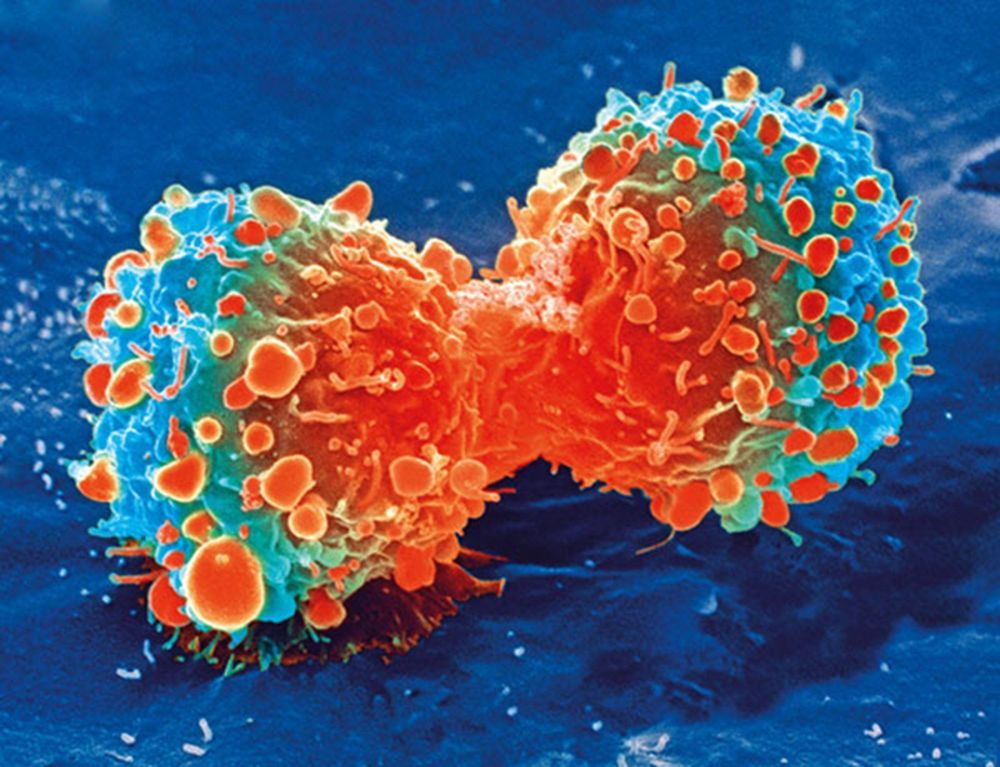
In the story of Goldilocks, a little girl tastes three different bowls of porridge to find which is not too hot, not too cold, but just the right temperature. In a study published in Advanced Therapeutics, University of Minnesota Medical School researchers report on a “Goldilocks” balance which holds the key to awakening the body’s immune response to fight off brain cancer.
The most common form of adult brain cancer is glioblastoma. Doctors diagnose about 14,000 glioblastoma cases in the U.S. each year. This aggressive cancer has claimed the lives of Senators John McCain and Edward Kennedy.
“Our body has armies of white blood cells that help us fight off bacteria, viruses and cancer cells. This constellation of cells constitute our immune system,” said senior author Clark C. Chen, MD, Ph.D., Lyle French Chair in Neurosurgery and Head of the Department of Neurosurgery at the University of Minnesota Medical School. “One of the key reasons why glioblastoma is so aggressive is that it shuts off this immune system.”
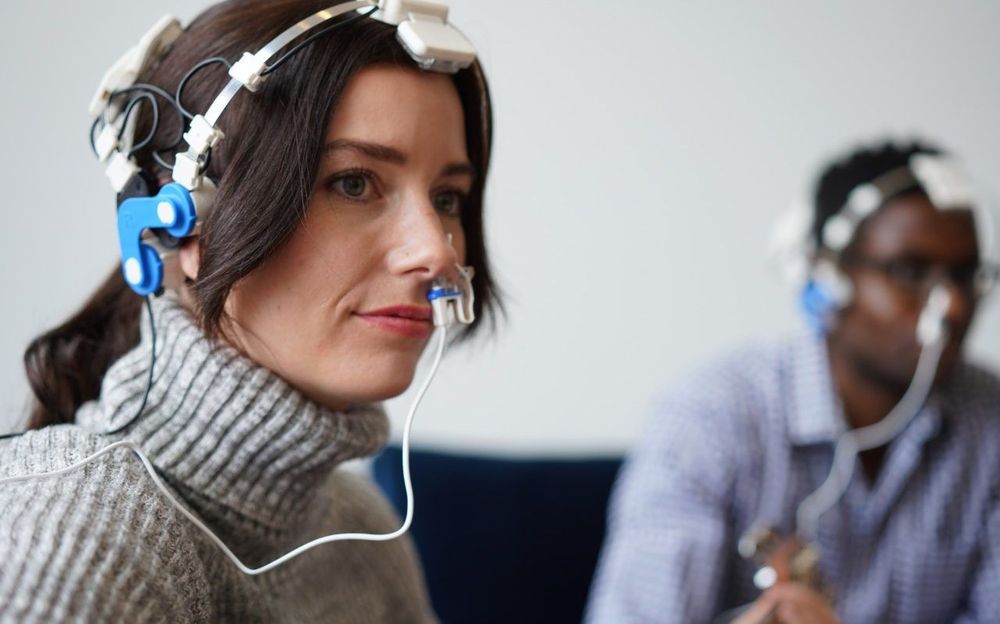
Alzheimer’s disease could be reversed by shining light directly into the brain through the nose and skull, scientists believe.
The first major trial to see if light therapy could be beneficial for dementia has just begun following astonishing early results which have seen people regain their memory, reading and writing skills, and orientation.
If successful it would be the first treatment to actually reverse the disease. So far, even the most hopeful drugs, such as Biogen’s aducanumab, have only managed to slow the onset of dementia, and many scientists had given up hope of reversing brain damage once it had already happened.
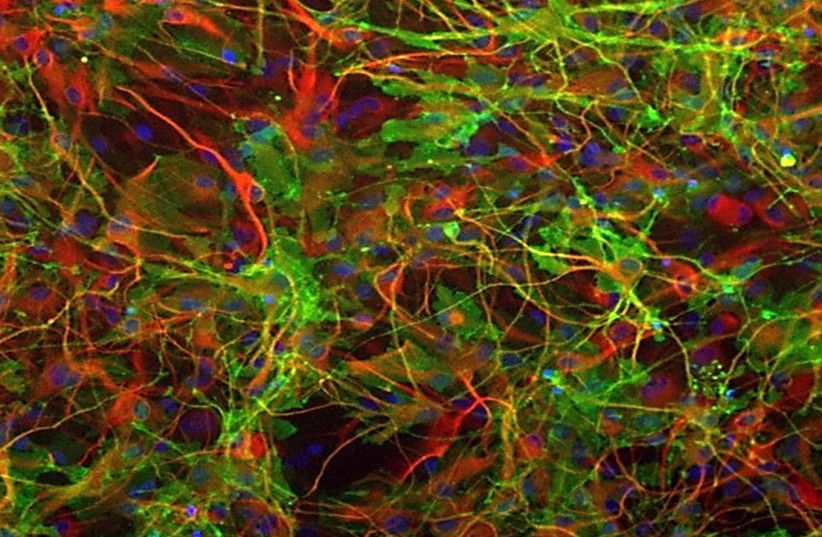
Specifically, AstroRx is a cell therapy product containing functional healthy astrocytes derived from human embryonic stem cells that aim to protect diseased motor neurons. The cells are injected in the patient through the spinal canal.
The company initiated its first ALS clinical trials in March 2018.
Prof. Michel Revel, founder and CEO of the company and winner of both the EMET Prize and the Israel Prize, said that the clinical trial results “provide the confidence needed to move forward” with cohorts B and C, which he said both “hold the potential for a prolonged response.”

.@ElonMusk’s Neuralink wants to create and develop brain-machine interfaces.
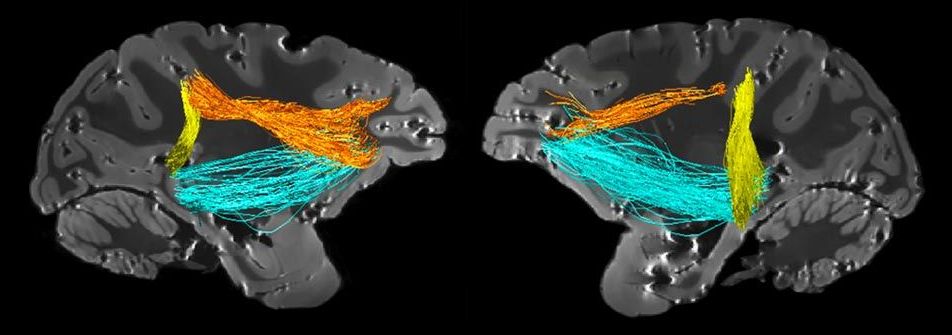
As you read this line, you’re bringing each word into clear view for a brief moment while blurring out the rest, perhaps even ignoring the roar of a leaf blower outside. It may seem like a trivial skill, but it’s actually fundamental to almost everything we do. If the brain weren’t able to pick and choose what portion of the incoming flood of sensory information should get premium processing, the world would look like utter chaos—an incomprehensible soup of attention-hijacking sounds and sights.
Meticulous research over decades has found that the control of this vital ability, called selective attention, belongs to a handful of areas in the brain’s parietal and frontal lobes. Now a new study suggests that another area in an unlikely location—the temporal lobe—also steers the spotlight of attention.
The unexpected addition raises new questions in what has long been considered a settled scientific field. “The last time an attention controlling area was discovered was 30 years ago,” says Winrich Freiwald, head of Rockefeller’s Laboratory of Neural Systems, who published the findings in the Proceedings of the National Academy of Sciences on November 4, 2019, “This is a fundamental discovery that might require a rethinking of old concepts about attentional control.”

If you’re interested in mind uploading, I have a book that I highly recommend. Rethinking Consciousness is a book by Michael S. A. Graziano, who is a Princeton University professor of psychology and neuroscience.
Early in his book Graziano writes a short summary:
“This book, however, is written entirely for the general reader. In it, I attempt to spell out, as simply and clearly as possible, a promising scientific theory of consciousness — one that can apply equally to biological brains and artificial machines.”
The theory is Attention Schema Theory.
I found this work compelling because one of the main issues in mind uploading is how do you make an inanimate object (like a robot or a computer) conscious? Graziano’s Attention Schema Theory provides a methodology.
After reading the book, be sure to read the Appendix, in which he writes:
“First, it serves as a tutorial on the attention schema theory. The underlying logic of the theory will be described in its simplest form. Second, I hope that the exercise will show engineers a general path forward for artificial consciousness.”